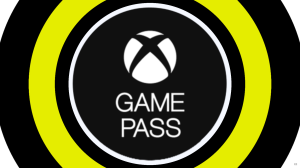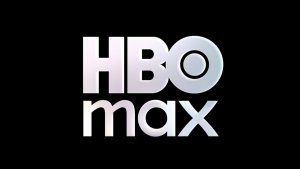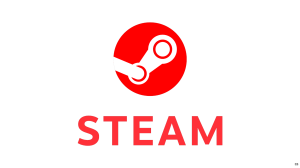
UPDATE: An Activision spokesperson has reached out to us, noting, “This was an exploratory patent filed in 2015 by an R&D team working independently from our game studios. It has not been implemented in-game.”
Videos by ComicBook.com
So it’s not happening, nor does it look like it could happen.
ORIGINAL STORY: It’s no question that companies like games that offer downloadable content that results in more purchases – after all, the more money a game makes for a company, the better. But some people have been crying foul over these tactics, like with the usage of loot boxes in games, or forcing players to buy certain elements within the game to win.
But a new report has surfaced online that indicates a new patent that Activision has filed that appears to make money a different way through DLC – via matchmaking.
Rolling Stone recently reported on a patent that was filed by the publisher back in 2015, where it was looking to design matchmaking systems for certain games. As this link from the US Patent and Trademark Office shows, it looks pretty authentic.
According to the patent, Activision was set to use “tricks” with matchmaking systems in an effort to get them to purchase in-game items through playing a game. For example, with one of the larger patents, it notes that high skilled players would automatically be paired with low patent players in an effort to encourage them to buy stuff in order to keep up.

“For example, in one implementation, the system may include a microtransaction engine that arranges matches to influence game-related purchases. For instance, the microtransaction engine may match a more expert/marquee player with a junior player to encourage the junior player to make game-related purchases of items possessed/used by the marquee player. A junior player may wish to emulate the marquee player by obtaining weapons or other items used by the marquee player.”
And specific items could be pointed out with the matchmaking as well, according to the patents. “Microtransaction engine 128 may analyze various items used by marquee players and, if at least one of the items is currently being offered for sale (with or without a promotion), match the marquee player with another player (e.g., a junior player) that does not use or own the item. Similarly, microtransaction engine 128 may identify items offered for sale, identify marquee players that use or possess those items, and match the marquee players with other players who do not use or possess those items. In this manner, microtransaction engine 128 may leverage the matchmaking abilities described herein to influence purchase decisions for game-related purchases.”
But the patent also points out how players could be encouraged to make additional purchases even after buying the core title, through gratification of a purchase.
“In an implementation, when a player makes a game-related purchase, microtransaction engine 128 may encourage future purchases by matching the player (e.g., using matchmaking described herein) in a gameplay session that will utilize the game-related purchase. Doing so may enhance a level of enjoyment by the player for the game-related purchase, which may encourage future purchases. For example, if the player purchased a particular weapon, microtransaction engine 128 may match the player in a gameplay session in which the particular weapon is highly effective, giving the player an impression that the particular weapon was a good purchase. This may encourage the player to make future purchases to achieve similar gameplay results.”
As a result, the patent could “arrange matches to influence game-related purchases.”
Now, Call of Duty games have seen Microtransactions over the past few years, through Supply Drops and cosmetic items, but we haven’t seen anything specific that ties in to matchmaking. It’s unknown if the system is still being put into place for future titles, or if Activision is just keeping up with the current business model.
The patent also discusses how a scoring engine can be used to rank a player’s skill, thus leading to potential recommendations. “In other words, a match score may indicate a predicted level of satisfaction of players that are placed in a potential match.”
There’s also certain criteria used with it, including the following:
- Latency between players (e.g., a delay time for data communication between players’ gaming systems or platforms such that lower latency is preferentially matched)
- A player skill level
- Ateam composition (e.g., a role played by each player of a potential match)
- A presence or absence of preferred players (e.g., clan members, friends, etc.)
- A time that a player has waited to be matched (e.g., a player having a longer wait time may be preferentially matched)
- A location of a player (e.g., players geographically close to one another may be preferentially matched.
Wait times could also be affected, depending on what the player is ranked by the score. “For example, scoring engine 122 may lower the threshold match score (assuming higher match scores are associated with higher match quality) when a given player has been waiting to be matched for a predetermined period of time. In some instances, the system may progressively lower the threshold match score as the player continues to wait to be matched until the player is eventually matched. In this manner, the system may allow a player to be matched using lower quality matches if the player has been waiting to be matched.”
It can also pursue certain profiles. “For example, player information may include, without limitation, a style of gameplay (e.g., aggressive), a role preference (e.g., an explicit indication by the player of such preference), a role actually played, a duration of gameplay sessions, a number of gameplay sessions played in a given login session, in-game items used or purchased by the player, membership in a clan or team, preference to play with clan mates or friends, demographic information of the player (e.g., geographic location, gender, income level, etc.), win/loss records, scores, and/or other information that may be used to determine whether a player will enjoy a given gameplay session, a match, and/or a game.”
There’s a lot more to it than that, and Activision hasn’t responded yet regarding the patent, nor did it note if any games use this system, or will use it. Bungie’s community manager, however, has noted that Destiny is not in use with it, though didn’t say anything about it being implemented in the future.
This is heavy stuff, but it could just be something that, again, Activision didn’t utilize in favor of another system.
It’s unlikely Call of Duty: WWII would use such a system, though Supply Drops and possible cosmetic items are likely to be offered once the game releases on November 3rd. We’ll see what happens following that.









